This documentary looks at the factors that led to the 2008 financial crisis and the efforts made by then Treasury Secretary Henry Paulson, Federal Reserve Bank of New York President Timothy Geithner, and Federal Reserve Chair Ben Bernanke to save the United States from an economic collapse.
Related Movies
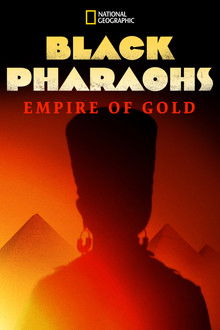
Black Pharaohs: Empire of Gold (2018)
It's a land of pyramids, gold, and ancient treasure, but it's not Egypt. It's present-day Sudan, once home to the glorious kingdom of Kush. Now, archaeologists are using every means possible - from robots to rock climbers - in their search for clues about this long-neglected culture. Once the Kushites filled the pharaohs' coffers with gold and, for a time, they even ruled over all of Egypt, but only now is their real story beginning to emerge.
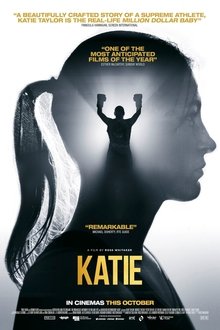
Katie (2018)
Follows Irish champion boxer Katie Taylor as she tries to rekindle her career after a year of setbacks.
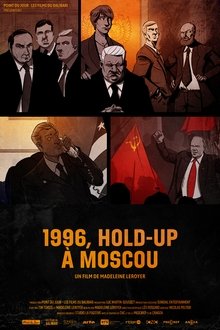
Moscow 1996, Vote or Lose! (2021)
Moscow, January 1996. Boris Yeltsin gets ready to run for a second mandate of the presidency of the young Russian Federation. Polls are in the single digits. A painful economic transition, war in Chechnya, and the rise of criminal groups have left the majority of Russians dissatisfied with Yeltsin… and willing to vote for the communist leader Gennady Zyuganov. Yet six months later, Yeltsin won the election with nearly 54% of the vote. How did that happen?

No es una crisis (2013)
No es una crisis delves into a European capital experiencing crisis and resistance: Madrid, where the Internet user explores the double experiment that Spain has become today-- economic liberalism and new social, economic, and political practices driven by the citizens.
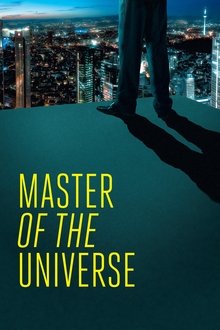
Master of the Universe (2013)
He was one of Germany's leading investment experts with an income of several million Euros per day. Now, he sits on one of the upper floors of an empty bank building in the middle of Frankfurt, overlooking a skyline of glass and steel. And talks. In an extended mix of a monologue and an in-depth interview, which is as frightening as it is fascinating, he shares his inside knowledge from a megalomaniac parallel world where illusions are the market's hardest currency. Marc Bauder's 'Master of the Universe' is based on meticulous research and provides us with geniune insight into the notoriously secretive and self-protective 'universe' of which our nameless protagonist experiences himself a master. Where other films on the financial meltdown have focused on the epic nature of larger-than-life business, Bauder probes the mentality that made it possible in the first place. A tense drama where psychology meets finance - two things that are more closely linked than you would like to believe.
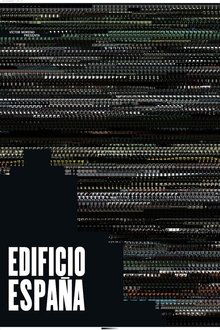
The Building (2012)
The documentary captures the fall or rebuilding what had been a symbol of the Franco regime, but the cessation of work due to the economic crisis turns into a viewer of the financial and economic paralysis of the country during these years.

Bricks (2017)
In Spanish, ladrillo means bricks. It used to mean boom, construction, production, speculation. Today, ladrillo means crisis: disused clay pits, factories that are closed half of the year, ghost-towns, subprime mortgagers facing eviction. Bricks shows how the life of a simple commodity can be the mirror of a global crisis, and tells the story of people who come up with individual and collective strategies to overcome a seemingly desperate situation.
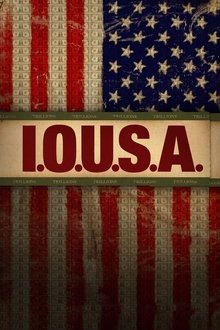
I.O.U.S.A. (2008)
With the country's debt growing out of control, Americans by and large are unaware of the looming financial crisis. This documentary examines several of the ways America can get its economy back on the right track. In addition to looking at the federal deficit and trade deficit, the film also closely explores the challenges of funding national entitlement programs such as Social Security, Medicare and Medicaid.
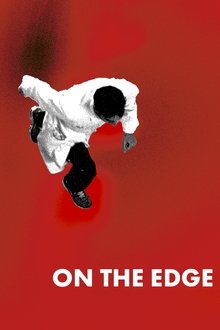
On the Edge (2023)
Things are busy at the Paris hospital where young psychiatrist Jamal and his colleagues work. The place is run down, the staff are exhausted, budgets are constantly being slashed. You know the story, but you’ve rarely seen it conveyed as engagingly as in ‘On the Edge’, which employs a handheld camera and meaningful, artistic interventions to observe the daily routine at the psychiatric ward. The deeply sympathetic Jamal is an everyday hero with an exemplary, humanistic disposition, for whom the most important prerequisites for mental health – and for a healthy society in general – are good relationships with other people. He puts his philosophy into practice by listening patiently, giving good advice and organising theatre exercises based on Molière. Realism and idealism, however, are in balance for the young doctor, at least as long as the institutional framework holds up.

Collapse (2009)
From the acclaimed director of American Movie, the documentary follows former Los Angeles police officer turned independent reporter Michael Ruppert. He recounts his career as a radical thinker and spells out his apocalyptic vision of the future, spanning the crises in economics, energy, environment and more.

Enron: The Smartest Guys in the Room (2005)
A documentary about the Enron corporation, its faulty and corrupt business practices, and how they led to its fall.
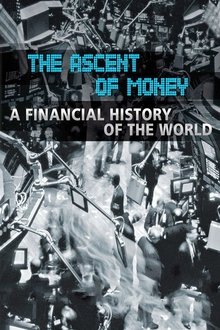
The Ascent of Money (2008)
British historian and author Niall Ferguson explains how big money works today as well as the causes of and solutions to economic catastrophes in this extended version The Ascent of Money documentary. Through interviews with top experts, such as former Federal Reserve Chairman Paul Volcker and American currency speculator George Soros, the intricate world of finance, including global commerce, banking and lending, is examined thoroughly.

The Money Lenders (1991)
Critical investigation of The World Bank and IMF. Too hot for PBS, but prime time TV everywhere else. Do the World Bank and IMF make the poor even poorer? Are the Bank and IMF democratic institutions? Why do people demonstrate against the Bank and IMF? For the first time, a documentary global investigation of major criticisms of the World Bank and the International Monetary Fund (IMF), two of the most powerful financial institutions in the world. Five country case studies are presented, each concentrating on a different aspect of critics' charges: 1. Bolivia: Debt, Drugs and Democracy 2. Ghana: The Model of Success 3. Brazil: Debt, Damage and Politics 4. Thailand: Dams and Dislocation 5. Philippines: The Debt Fighters. The charges, including those related to structural adjustment, are controversial and provocative. Some go to the heart of the power and policies of these institutions.
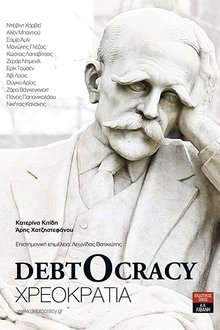
Debtocracy (2011)
Debtocracy seeks the causes of the Greek debt crisis and proposes solutions sidelined by the government and the dominant media. It follows countries like Ecuador that created debt Audit Commissions and tracks this process in Greece.

American Casino (2009)
“I don’t think most people really understood that they were in a casino” says award-winning financial reporter Mark Pittman. “When you’re in the Street’s casino, you’ve got to play by their rules.” This film finally explains how and why over $12 trillion of our money vanished into the American Casino.
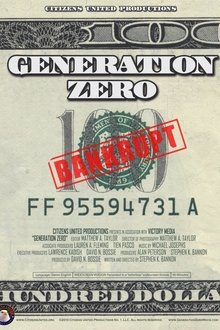
Generation Zero (2010)
An examination of the causes of the global economic crisis which began in 2008, studying how decades of social changes have influenced financial systems and practices.
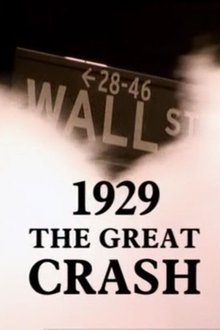
1929: The Great Crash (2009)
A documentary exploring the causes of the 1929 Wall Street Crash.Over six terrifying, desperate days in October 1929, shares crashed by a third on the New York Stock Exchange. More than $25 billion in individual wealth was lost. Later, three thousand banks failed, taking people's savings with them. Surviving eyewitnesses describe the biggest financial catastrophe in history.

Inside Job (2010)
A film that exposes the shocking truth behind the economic crisis of 2008. The global financial meltdown, at a cost of over $20 trillion, resulted in millions of people losing their homes and jobs. Through extensive research and interviews with major financial insiders, politicians and journalists, Inside Job traces the rise of a rogue industry and unveils the corrosive relationships which have corrupted politics, regulation and academia.
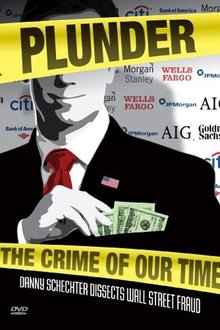
Plunder: The Crime of Our Time (2009)
Plunder: The Crime of Our Time is a hard-hitting investigative film by Danny Schechter. The "News Dissector" explores how the financial crisis was built on a foundation of criminal activity uncovering the connection between the collapse of the housing market and the economic catastrophe that followed.

The New Deal: The Man Who Changed America (2021)
Elected in November 1932, as the economic crisis ravaged the United States, Franklin Delano Roosevelt immediately put all his campaign promises into action: it was time for the "New Deal". This bold plan, designed to turn around a nation on the brink of collapse, where unemployment was at an all-time high and the working poor were suffering from the precariousness of the job market, was intended to give hope to a country that had been battered before anything else. Once he came to power, the new president from the Democratic Party immediately passed some fifteen laws designed to revive the economy.